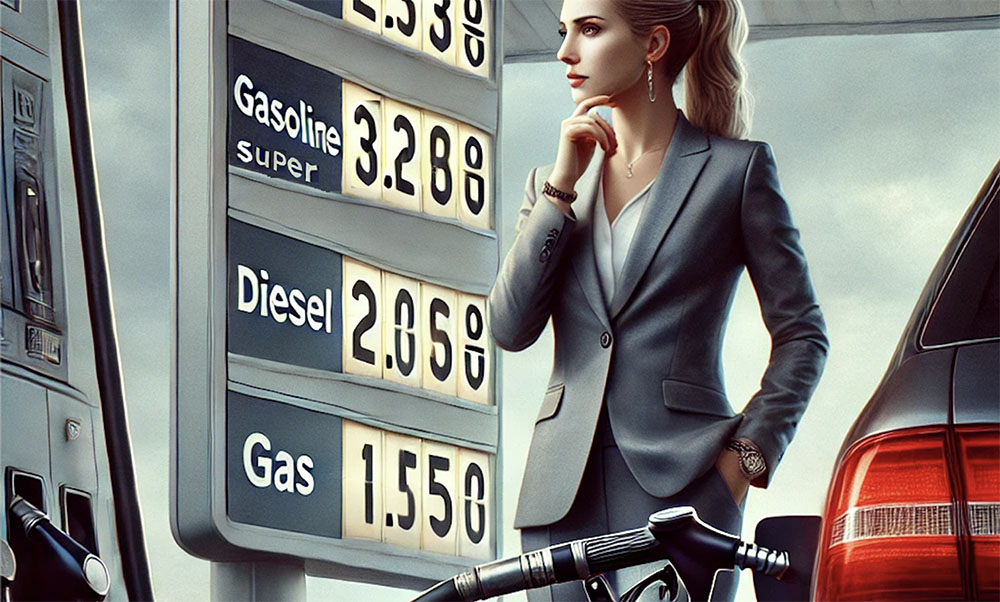
De stijgende kosten van autobezit in Nederland
De stijgende kosten van autobezit in Nederland
In de afgelopen jaren zijn de kosten van autobezit in Nederland aanzienlijk gestegen, gedreven door hogere brandstofprijzen, zwaardere belastingen en stijgende verzekeringspremies. Deze factoren maken autobezit voor veel Nederlanders steeds zwaarder, waardoor men op zoek gaat naar alternatieven zoals carpoolen om de uitgaven te beperken.
Stijgende brandstofprijzen
Een van de meest zichtbare kostenstijgingen betreft de brandstofprijzen. Nederland heeft, net als veel andere Europese landen, een gestage stijging doorgemaakt door schommelingen in de wereldwijde olieprijzen en milieubelastingen. In 2023 bereikte de gemiddelde benzineprijs in Nederland ongeveer €2,00 per liter, een duidelijke toename ten opzichte van voorgaande jaren (CBS, 2023). De dieselprijzen volgden een vergelijkbare trend en zetten de budgetten van automobilisten verder onder druk. Deze stijgende brandstofkosten hangen deels samen met de inzet van de Nederlandse overheid om de CO₂-uitstoot te verlagen, wat heeft geleid tot hogere belastingen op fossiele brandstoffen (European Environment Agency, 2023). De overheid was van plan de brandstofaccijns in 2025 met circa 20 cent per liter te verhogen, maar dat is uitgesteld tot 2026.
Zwaardere belastingdruk
De Nederlandse overheid heeft meerdere fiscale maatregelen genomen om autogebruik te ontmoedigen en duurzame mobiliteit te stimuleren. De motorrijtuigenbelasting (wegenbelasting) en de belasting van personenauto’s en motorrijwielen (BPM) zijn aangepast op basis van milieucriteria, met hogere tarieven voor voertuigen met meer CO₂-uitstoot. Zo kan de BPM duizenden euro’s toevoegen aan de aanschafprijs van een nieuwe auto, zeker bij grotere en minder zuinige modellen (Belastingdienst, 2023). Daarnaast worden de wegenbelastingtarieven berekend op basis van gewicht en brandstoftype, wat de financiële last voor autobezitters verder vergroot.
Stijgende verzekeringspremies
Autoverzekeringspremies in Nederland zijn eveneens gestegen door meer schadeclaims en hogere reparatiekosten. Volgens het Verbond van Verzekeraars (2023) steeg de gemiddelde jaarpremie in 2023 met circa 5%, waarbij sommige bestuurders hogere stijgingen zagen afhankelijk van leeftijd, rijverleden en woonplaats. Aangenomen wordt dat deze trend doorzet nu de kosten voor (geavanceerde) reparaties en vervangingen toenemen, vooral bij nieuwere modellen met moderne technologie.
De rol van carpoolen
Als reactie op deze stijgende kosten kiezen veel Nederlanders voor carpoolen als kosteneffectief alternatief. Carpoolen—het delen van ritten met anderen—maakt het mogelijk om brandstof, tol en parkeerkosten te delen en zo de financiële last van autobezit aanzienlijk te verlagen. Slimme initiatieven zoals ColiRide winnen aan populariteit in Nederland en bieden forenzen een handige manier om ritten te delen en geld te besparen.
Carpoolen sluit bovendien aan bij de duurzaamheidsdoelen van de overheid door het aantal voertuigen op de weg te verminderen en daarmee files en emissies terug te dringen. Werkgevers en gemeenten promoten carpoolen in toenemende mate via prikkels zoals gereserveerde carpoolplaatsen en lagere parkeertarieven voor gedeelde voertuigen (Ministerie van Infrastructuur en Waterstaat, 2023). Deze maatregelen helpen niet alleen om kosten te besparen, maar dragen ook bij aan een groener en efficiënter mobiliteitssysteem.
Door de stijgende kosten van autobezit in Nederland—gedreven door duurdere brandstof, belastingen en verzekeringen—is carpoolen voor veel inwoners een aantrekkelijk alternatief geworden. Door ritten te delen kunnen mensen hun vervoersuitgaven aanzienlijk verminderen én bijdragen aan milieuduurzaamheid. Nu de overheid blijft inzetten op het beperken van autoverslaving, zal carpoolen waarschijnlijk een steeds belangrijkere rol spelen in het mobiliteitslandschap van Nederland.
Referenties
- CBS (2023). Brandstofprijzen in Nederland. Statistics Netherlands. Geraadpleegd via https://www.cbs.nl
- Belastingdienst (2023). Autobelastingen in Nederland. Geraadpleegd via https://www.belastingdienst.nl
- Verbond van Verzekeraars (2023). Trends in autoverzekeringen in Nederland. Geraadpleegd via https://www.verzekeraars.nl
- Ministerie van Infrastructuur en Waterstaat (2023). Duurzame mobiliteitsinitiatieven. Geraadpleegd via https://www.rijksoverheid.nl
- European Environment Agency (2023). Milieubelastingen en brandstofprijzen in Europa. Geraadpleegd via https://www.eea.europa.eu
Share this:
Recente berichten
- Waarom gedeelde mobiliteit uw beste Scope 3-strategie is
- Hoe carpoolen de aanwezigheid en HR-doelstellingen versterkt
- Carpoolen over de hele wereld: lessen uit wereldwijde deelritculturen
- Hoe carpooling nederlandse bedrijven helpt netto-nul te bereiken
- Het ijs breken: de ongemakkelijke eerste carpoolritten overwinnen